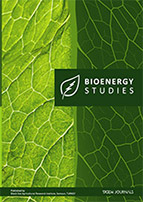Turkish Journal of Fisheries and Aquatic Sciences
2017, Vol 17, Num, 6 (Pages: 1107-1115)
A Comparative Study on Quality of Dried Anchovy (Stelophorus heterolobus) Using Open Sun Rack and Solar Tent Drying Methods
2 School of Food science and Technology, Jiangnan University, Wuxi 214122, PR China
3 Wuxi Fisheries College, Nanjing Agricultural University, 69 Xue Jia Li (Binhu Nanquan town), Wuxi 214081, Jiangsu, PR China
4 Kentucky State University, Division of Aquaculture, College of Agriculture, Food Science and Sustainable Systems (CAFSSS), 103 Athletic Rd., Frankfort, KY 40601, USA DOI : 10.4194/1303-2712-v17_6_04 Viewed : 4591 - Downloaded : 5251 The open sun rack and solar tent drier were evaluated for their drying effectiveness to evaluate the quality of Stelophorus heterolobus. The highest mean temperature in the solar tent drier was found to be 450c, with relative humidity 42%, while in the open sun rack drying was 350c, with relative humidity 47% at an air speed of 1.8 meter per second. The average moisture, crude protein, total lipids, free fatty acid, peroxide, total volatile basic nitrogen and ash content of the solar tent dried products were 7.5 %, 79.32%, 3.74%, 0.50%, 14.66% , 19.65% and 9.90%, and for open sun rack were7.7% 75.32%, 3.20%, 0.54%, 13.66%, 21.80% and 9.20%, respectively. Total plate count (TPC) of 3.2 × 103cfu/g and 5.7 ×103cfu/g was found within the average level for solar tent and open sun rack driers respectively.The quality of the fish products dried in the solar tent drier was superior compared to that of open sun rack-dried products. It took only three days for the fish to be dried in the solar tent drier compared with the open sun rack dried fish products which took five days to dry. Keywords : Fish (Stelophorous heterolobus), proximate composition, microbial loads, organoleptic characteristics, traditional drying methods
















